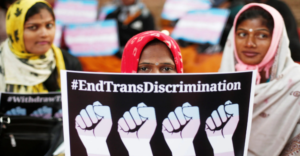~ Ridhima Yadav
Nelson Mandela once said, “Education is the most powerful weapon.” A country is never known for its megastructures. It is known by the character of its people and if the people themselves are uneducated and illiterate then the country is definitely going downhill. In a country, when more people are uneducated then this means there are more liabilities and fewer assets which directly indicates that the economic growth is stuck in a downward spiral.
Before, going in-depth let’s understand what education really means!
What is Education?
According to the dictionary, Education is the act or process of imparting or acquiring general knowledge, developing the powers of reasoning and judgment, and generally preparing oneself or others intellectually for mature life. Then the question arises, why is it so quintessential? Some people argue that education is not a prerequisite for their survival so why worry. That may be true to some extent however, what is important is not just to survive but also to enhance the quality of your life which is possible through the medium of education. To say that education is crucial is definitely an understatement. It’s a weapon or a tool that can change your life but not in seconds. It is a lifelong process that continues forever. This will help you to have a deeper knowledge and understanding of various kinds of subjects/aspects that will be applied to one’s daily life.
Top 4 reasons why education needs to be underscored:
- Establishes financial security and stability: Education is one thing that no one can take from you if you possess that. It ensures that in your future you will have a sense of security. If you’re well educated then you will most certainly have a high paid job which intern makes you financially secure.
- Self-Dependency: In this world, where money is given the topmost priority and everything is monetised, it becomes even more salient to be self-dependent and not rely on others. This not only makes you self-reliant but also lets you make your own choices.
- Inclusive and safer world: When one is well-educated, then they have the sense to differentiate between what is right and what is wrong. In fact, they are more sensitised to the problems of the world and try to build surroundings that are inclusive for all kinds of people. Thereby it ensures a safer world that is better equipped with the concepts of inclusivity.
- Productivity in the society: “Education is the passport to the future, for tomorrow belongs to those who prepare for it today.” — Malcolm X. It is all the more significant to increase the productivity in our society. To build up this productivity, we need assets in our society who are well educated so that they can function with utmost efficiency. A strong workforce will be required who cater to the services of the society. All this is possible only through education.
The pivotal problems that the country is facing under Education Planning is:
- Inadequate school infrastructure
- Low enrolment of the girl students
- Hike in teacher absenteeism
- Lack of public involvement in catering to educational services
- Lack of knowledge regarding the importance of education
- Low levels of learning achievements
What initiatives has the GOI taken up?
Right to Education Act, 2010 – This is an initiative that focuses on increasing the number of educated citizens in the country. Right of Children to Free and Compulsory Education Act or Right to Education Act (RTE) describes the modalities of the importance of free and compulsory education for all children aged between six to fourteen years. ( it was enacted on 4th August 2009). Henceforth, Education was made a fundamental right which shows how prime it is for the betterment of not only individuals but also the society as a whole.
Sarva Shiksha Abhiyaan – It was initiated in the 1990s to escalate the rate of literacy in India. SSA is implemented in collaboration with State Governments to take into account the entire country and underscore the needs of 192 million children in 1.1 million habitations. It also provides skills like life skills as a part of elementary education.
Although, implementation of various policies like Samagra Shiksha Abhiyaan (providing equal opportunities for schooling and equitable learning resources), Rashtriya Ucchtar Shiksha Abhiyan (holistic scheme for development of higher education in India) and Vidyanjali (involving volunteers in co-scholastic activities), children from economically weaker sections of the society face problems. This problem needs to be rectified for the betterment of these children.
A must-read- Gurukul and Montessori Education system.





